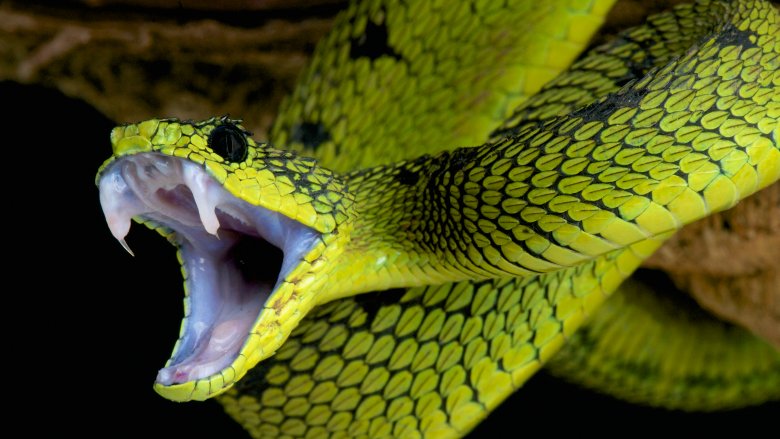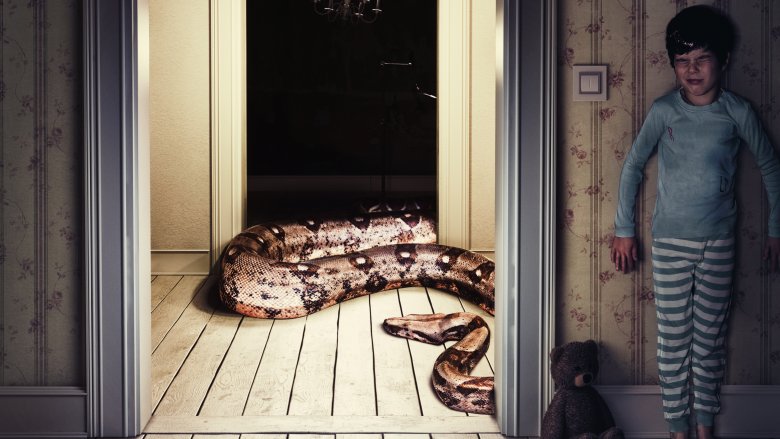The Reason So Many People Fear Snakes
What do the Bible and the Harry Potter series have in common? A bearded figure capable of amazing feats? Maybe. A story centered around "the Chosen One?" Perhaps. But the answer no one can deny is that neither story seems to think highly of snakes. Adam and Eve got hoodwinked by a nefarious scaly serpent, and just about everything associated with "bad" in Harry Potter has to do with something slithering.
Why all the snake hate? It's almost as if it's hardwired into us. According to National Geographic, this is likely the case.
Researchers from the Max Planck Institute in Germany and Sweden's Uppsala University tested this hypothesis on the most guileless of all human population segments –- babies. Those poor kids.
Forty-eight lucky six-month-olds got the pleasure of sitting in their parents' laps while being shown images of snakes and spiders on a white background for five seconds, along with control images of flowers and fish.
The babies consistently reacted with dilated pupils, an involuntary response often used as a benchmark of stress in humans, according to Scientific American.
Lead researcher Stefanie Hoehl clarified that the bug-eyed babies weren't necessarily afraid, as much as in a heightened state of arousal and mental processing. For some, this could be fear, and others simply intense focus. Regardless, we focus when awareness is important, and David Rakison – psychology professor at Carnegie Mellon University studying early infant development — believes the results indicate an innate fear response.
"Infants possess a specialized fear mechanism that means that they are 'prepared' to learn quickly that snakes and spiders are associated with a specific emotional or behavioral response," he said.
Blame evolution for our fear of snakes
So why are we so afraid? According to this study published in the Journal of Experimental Psychology (via National Geographic), we've been conditioned to be wary of snakes and spiders through millions of years of co-evolution. Basically, humanity is "twice bitten," when it comes to creepy crawlies.
Or as the study's coauthor, Arne Öhman puts it: "Snakes have provided a recurrent threat throughout mammalian evolution. Individuals who have been good at identifying and recruiting defense responses to snakes have left more offspring than individuals with less efficient defense systems."
Basically, those who pay more attention to potentially dangerous animals have survived to reproduce more than others. Go figure.

